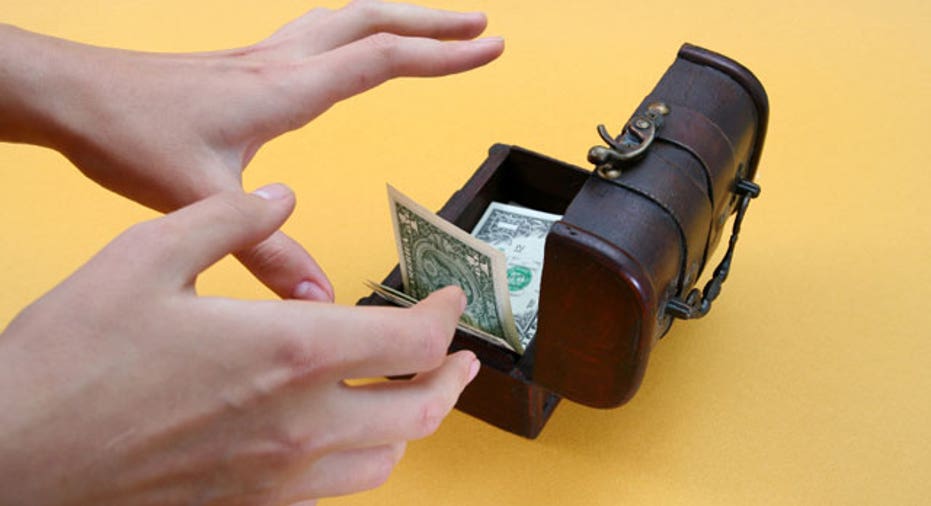Alternate Strategies to Saving for Emergency Funds

Dear New Frugal You,
Emergency fund, emergency fund, emergency fund. Everybody says it's important, but I'm not so sure. First, it can be hard to have several thousand dollars in an account and not spend it. And second, there are ways around having a pile of cash sitting around. Many loans, such as student and auto loans, let you pay more than the minimum now and then let you pay less later. This can be viewed as an extra buffer in your emergency fund. For example, let's say that you owe $300 a month for a car. If you pay $400, then after one year you will have paid for four extra months. If you lose your job, then you have four months where you don't have to pay your auto loan. This can free up cash in your emergency fund to be used to pay for rent/mortgage or groceries. The money can help you in an emergency and may be less tempting to spend than money just sitting in a bank account. Also, depending on the interest rate on the loan, you may be able to earn a "better" return paying off extra on a loan, than earning little interest in a bank account.
-Valerie
Dear Valerie,
At a time when unemployment is hovering around 9%, you're absolutely right to be thinking about an emergency fund. Every family should have some resources stashed away for an unplanned emergency.
You've also put your finger on two key issues for any emergency fund:
*How much can I earn on my savings?
*And, can I keep from spending it on nonemergency things?
First, the earnings issue. It might not seem like much, but every extra percent in earning makes a difference in the size of your emergency fund. For instance, each dollar you save will double six years earlier if it's earning 4% instead of 3%. So if you want to invest your emergency fund where it will grow for you, comparison shop for the best savings rate.
Second, how good are you at not spending your savings? My dad used to say that some people let money burn a hole in their pocket. He meant that some of us had a difficult time not spending money if it was available. If we're honest with ourselves, we know if we have that problem. Not sure? Check your bank balance. If it's at or near zero, you may have a tendency to spend your savings.
Now that we understand the issues, let's look at your situation. Are you better off prepaying certain debts? Or should you put extra savings into your emergency fund?
You're right that the interest rate on your car loan is greater than what you can safely earn at a bank or credit union. That will almost always be the case. But, adding money to each monthly payment might not earn the return you expect.
Many car loans add all the interest that you'll owe to the balance as soon as you borrow the money. Suppose you financed $10,000 and the payments were $235 for 48 months -- a total of $11,280. In this type of loan, no matter how early you pay, you'll still pay a total of $11,280. Even if you pay it all in the first year.
That's different than if interest is calculated on how much you still owe each month. Then an early payment reduces the amount of interest you'll owe and how much you'll pay in total.
So before you assume that an early car or student loan payment will earn you the rate you're paying, check with the finance company. A simple question will get your answer: Will prepayments reduce the total amount that I'll pay over the life of the loan?
You'll also want to ask whether there are any prepayment penalties, and whether prepayments will allow you to miss payments later. Typically, if your prepayment is applied to the amount owed, you'll face penalties and won't be allowed to miss payments.
It may be that prepaying your auto loan might not be a good way to build an emergency fund. Perhaps saving is a better idea.
But, what if you tend to spend your savings? What then? Consider finding ways to make it inconvenient to access your money. Put the money in a one-year CD. Or use an out-of-town bank so you'd have to drive there to make a withdrawal. Do something -- anything -- so that the money is not readily available.
Ultimately, the primary reason to have an emergency fund is to make sure that you have money available when a crisis occurs. So how much interest you earn is less important than knowing that the money will be there when you need it.
See related: Easy ways to save an emergency fund, 7 simple ways to create an emergency fund
More from CreditCards.com:



















